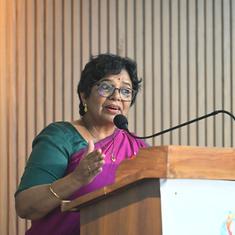On August 5, the Narendra Modi government revoked the special status that had been held by Jammu and Kashmir since it acceded to the Indian Union in 1947. It also partitioned the state, separating out the region of Ladakh as well as demoting both regions to the status of a Union territory, ruled directly from New Delhi.
Since then, the Indian government has been running a furious diplomatic war to attempt to win the perception battle. Kashmir is one of the world’s best-known disputes and India’s unilateral decision to alter the terms of its relationship with the state had the potential to cause international blowback.
For the most part, India has done well in convincing foreign governments to support its Kashmir gambit. Just before the Bharatiya Janata Party-led government announced its Kashmir decision, the United States had made some noises about participating in a mediation process to find peace in the Valley – a strategy that India is dead set against. But at an August 26 meeting with Modi, US President Donald Trump acknowledged New Delhi’s official position that the Kashmir crisis should be solved bilaterally between India and Pakistan.
Major European powers such as the the United Kingdom and Germany have also stood by India. France came out strongly in support of New Delhi, a policy driven at least partly by the fact that India is a major buyer of defence equipment from that country. Even Arab countries have mostly supported India or have declined to comment – a situation that suits New Delhi just fine.
However, there is a danger that this diplomatic win will be seen as a signal within India that the Modi government’s actions in Kashmir are justified. That will be a mistake. What the Union government has done in the Valley goes far beyond any legal change: it has put seven million people under a security clampdown, most means of communication and detaining thousands of people without charge.
With the Valley cut off for 25 days now, the state’s health services have been severely hurt. Without any means to communicate, doctors are unable to reach patients and there are fears that the region will run out of medicines.
The Modi government’s decision has also completely killed the prospect of a mainstream political process being revived in the Valley: all the politicians who were ready to work within the Indian system now being arrested by the Indian government. Unsurprisingly, the situation has led to widespread discontent in Kashmir. More than 500 protests have taken place in Kashmir since August 5, the news agency Agence France-Presse reported.
Not only is this lockdown cruel on seven million Kashmiris, the draconian move distorts Indian democracy itself. The same muscular nationalism that led to Kashmir’s democratic voice being snuffed out will also turn on other Indians. As social scientist and historian Partha Chatterjee put it, “Only the Hindu upper-caste male who speaks Hindi will have the sovereign privilege of not having to prove his Indianness.”
A diplomatic win might be a fine thing— but it would be foolish to use that as the only metric to measure the impact of the Modi government’s shock move on Kashmir as well as the rest of India.










